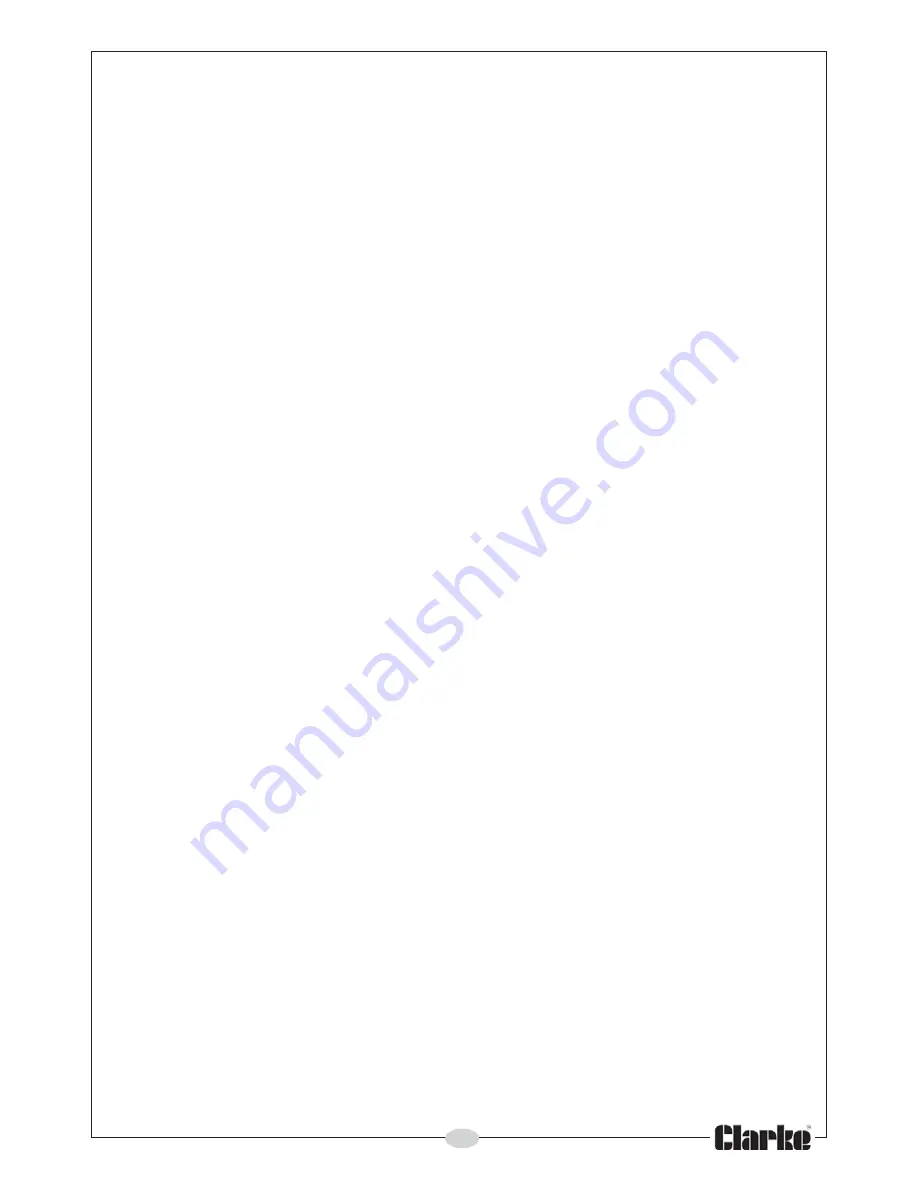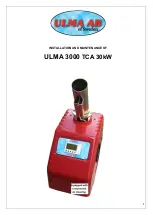
19
(available from your Clarke dealer) must be used, in either aerosol or brush
applied form. Should rust become apparent, clean thoroughly with a wire
brush and apply a suitable anti-rust treatment.
During prolonged periods out of use, the air inlets should be left open and the
door left slightly ajar in order to circulate fresh air and discourage
condensation from forming which could encourage corrosion.
GLASS PANELS
Clean any glass panels when cool, avoiding abrasive substances which
could scratch the glass & make subsequent cleaning more difficult. Wet logs
against a heated glass, a badly aimed poker or heavy slamming of the doors
could crack the glass panels. The glass will not fracture with heat. Never
replace broken glass with glass NOT approved for use with cast iron stoves.
The window glass should remain clean during normal use but it can become
blackened if the stove is being operated with either damp fuels or at a slow
burn rate. The blackening may be dispersed by burning briefly at a much
higher temperature, or it may be cleaned off using specialist glass cleaner.
In the event of the glass being broken, it can be removed by unscrewing the
retaining clips, taking care not to damage the fireproof seal. The replace-
ment glass should be carefully placed against the seal and the retaining clips
re-tensioned. Take care to tension these evenly or there is a risk of breaking
the new glass pane.
During prolonged periods out of use, the air inlets should be left open and the
door left slightly ajar in order to circulate fresh air and discourage
condensation from forming which could encourage corrosion.
CHIMNEYS AND FLU-WAYS
It is important that the chimney, flu-ways and any connecting flue pipe are
swept regularly. This means at least once a year for smokeless fuels and at
least twice a year for wood and other fuels.
Only wire-centred sweep’s brushes fitted with a guide wheel should be used.
If it is not possible to sweep all parts of the chimney through the stove, ensure
there is adequate access to cleaning doors.
If the stove is fitted in place of an open fire, then the chimney should be
swept one month after installation to clear any soot falls which may have
occurred, due to the difference in combustion performance between the
stove and the open fire.
The flue and chimney should be inspected for a buildup of deposits
especially following prolonged periods without use. The entire chimney/flue
should be swept frequently from top to bottom by a registered chimney
sweep to remove any buildup of soot etc, the frequency being dependant
upon the usage and the fuels being burnt. If the chimney is swept after a few
weeks of regular use, the condition found will give an indication of the
frequency of sweeping required. On an annual basis, the chimney is best
swept just before the main winter burning season.






































